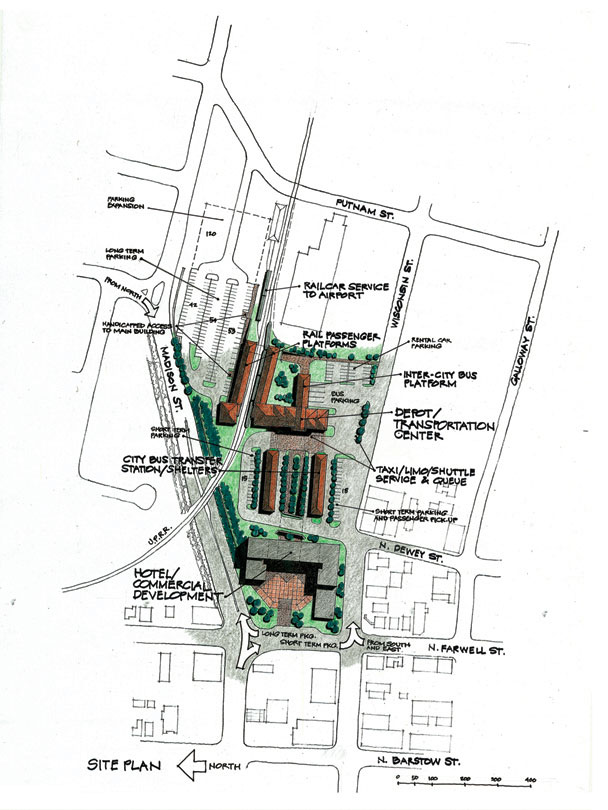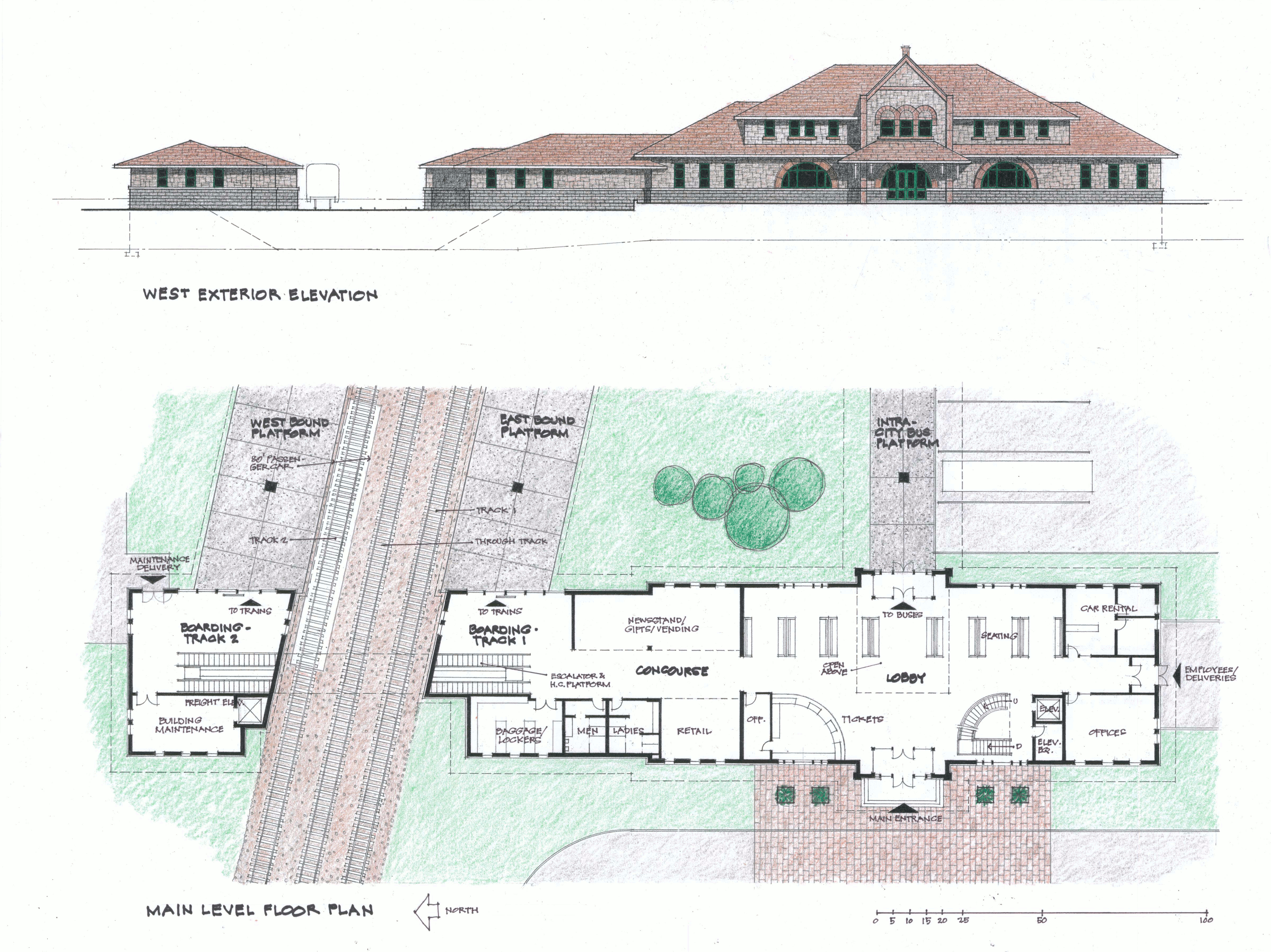Benefits:
economic
Of all the advantages attributed to having passenger rail in any geographic region, economic advantages are undoubtedly the most important.
Scores of facts and statistics exist that support how important these myriad advantages are to Wisconsin communities and regions. A few of the most convincing economy driven assets are:
Links our region to 18 million people of the Twin Cities, Madison, Milwaukee and Chicago metro areas which improves everyone's economic competitiveness.
Connects the best universities and private Research and Development Centers of the Midwest, creating incubators for growing industries of every description.
Drives local business development and investment opportunities.
Provides much needed access, enriches our area university's and technical colleges collective stature and creates employment opportunities in our area for out state and out-of-state students.
Supports the hundreds of high-tech and service sector jobs for businesses all along the I-94 corridor.
Dramatically reduces travel costs for businesses.
Attracts transit oriented real estate development and smart growth policies.
Attracts increased tourism activity and spending.
And, on the downside, freeway maintenance and expansion are fast outstripping our ability to pay the costs.
Simply stated, high speed passenger rail service to our area is crucial for long term sustainable economic growth. Communities and regions blessed with passenger rail service will thrive while those without will not.
TO SEE HOW EXPANDED PASSENGER TRAIN SERVICE TRANSFORMED AN ILLINOIS TOWN, SIMILAR TO EAU CLAIRE, CLICK HERE.


productivity
Productivity issues can easily be considered as economic issues, as they all impact theeconomic bottom line. However, some often overlooked but enormously important negatives associated with other travel modes must be factored into our decisions alongside the more positive points.
Commuter trains can transport 50,000 passengers an hour compared to 2,000 by car.
Today's trains provide every electronic attribute necessary to create a “traveling office” for its riders.
Dependable passenger train service prevents riders from joining the millions of United States commuters who lost more than 4 billion hours to automobile congestion and 2 million hours of delays for air travelers in 2007.
Reliable on-time passenger service provides businesses with not only the amenities to work while traveling, but with predictable scheduling for work at the remote site and return.
Provides a far more productive and convenient connection between west central Wisconsin and our government seat in Madison.
On average, passenger rail is 6 to 7 times less expensive to build than freeways.
Rail requires 10% the amount of land required for interstate highways.
Only the most severe weather affects passenger rail travel.
Business travel by train eliminates the fatigue and stress of driving, assuring productive time at the destination.
Travel times to Chicago and St Paul are 4.5 hours and 1.5 hours respectfully.
safety & environment
As responsible citizens we enthusiastically endorse the safety and environmental advantages that passenger train travel offers. Following are several considerations that truly make passenger rail travel so important to us all.
Contributes greatly to improved air quality and reduced greenhouse emissions via modal shift from cars.
Automobile travel claims 70 times more lives annually than passenger rail.
Passenger rail travel produces 71% fewer carbon dioxide emissions per passenger mile than automobile travel.
Shipping by rail is 4 times more fuel efficient than shipping by truck.
Passenger trains consume 28% less fuel per passenger mile than cars.
options
Probably not the most important issue for the majority of souls in west central Wisconsin, but definitely the difference between a full, robust quality of life and an existence much less satisfying for thousands of handicapped, elderly and otherwise needy. Also, these travel options and general diversity help attract and keep our brightest and best in the area.
Passenger rail is a very real option for those who cannot drive, those who choose not to drive and the elderly.
Stress due to driving and parking problems are particularly difficult for the aged and handicapped.
Train service offers an additional travel option for secondary education students, many of which presently are not candidates because we lack that option.
An interesting fact, and not exactly a passenger rail comparison, but still relevant, a U.S. family can save $9,986 annually by swapping one of their 2 cars for public transit.


